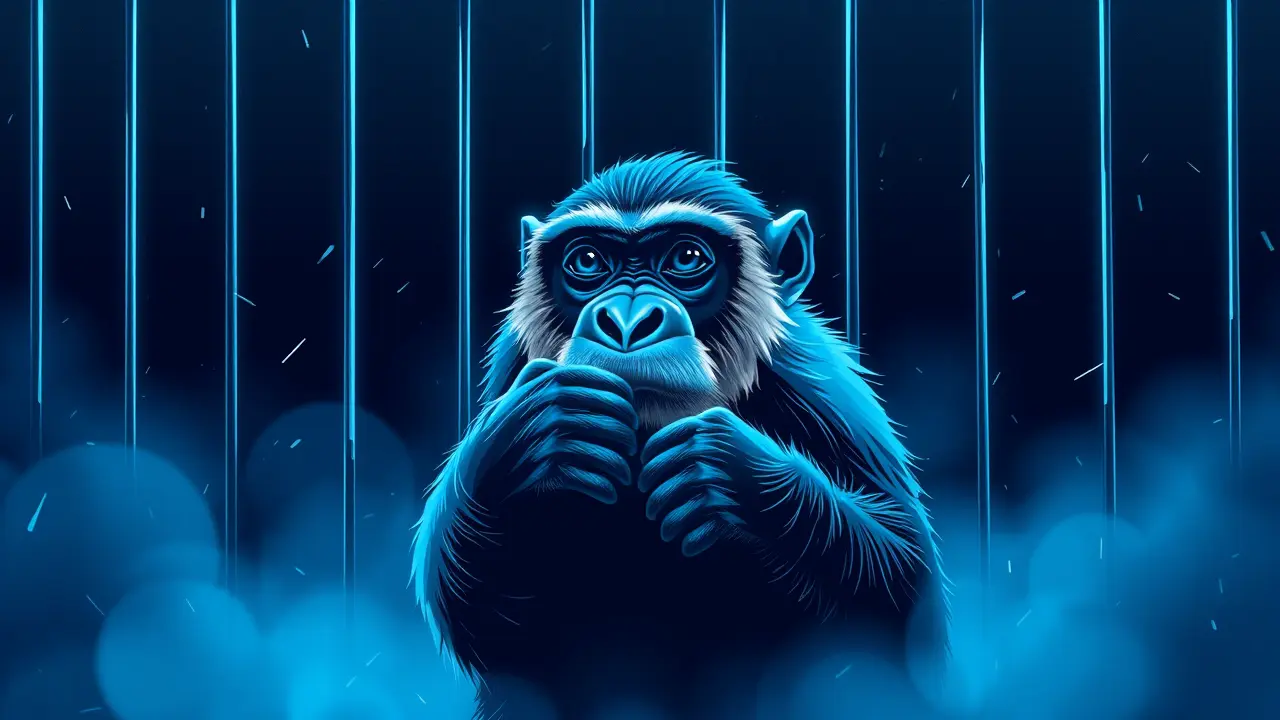
SciencebiologyAnimal Behavior
Escaped Primates Challenge Animal Rights Movement
RA
Rachel Adams
13 hours ago7 min read
The recent, unsettling spate of primate escapes from research facilities and zoological parks has thrown the foundational philosophies of the animal rights movement into stark, uncomfortable relief, challenging its core tenets in ways both profound and deeply unsettling. For decades, the movement has operated on a clear, if contentious, moral axis: the imperative to liberate sentient beings from their concrete and steel confines, to grant them a freedom we arrogantly assume they inherently crave.Yet, what are we to make of the escaped macaque who, after a fleeting taste of liberty, is found huddled near the warm exhaust vent of the building it fled, or the orangutan who, having meticulously picked a lock, shows no interest in the sprawling forest beyond the perimeter fence but instead seeks out the familiar comfort of a keeper's abandoned sweater? These are not the triumphant narratives of liberation we so easily champion; they are complex, messy stories that force us to confront a more nuanced, and perhaps more tragic, reality. The poignant line from a recent poem, 'I wasn’t fooled by these walls of my body / but loved them touched,' serves as an unexpected but powerful metaphor for this dilemma.It speaks to a paradoxical relationship with confinement, suggesting that existence is not defined solely by physical barriers but by the relationships and sensory experiences contained within them. These primates did not simply escape 'to' something, but 'from' something, and their subsequent actions reveal a world of complicated attachments, learned dependencies, and a concept of 'home' that defies our simplistic definitions of captivity versus freedom.From a biological and ecological standpoint, the situation is equally fraught. Many of these individuals, born and raised in controlled environments, are ecological orphans; they possess no learned survival skills, no territorial knowledge, no social structure beyond the one imposed upon them.Their attempted flights are not a return to a wild Eden, but a terrifying plunge into an alien landscape for which they are utterly unprepared, a point starkly illustrated by the tragic case of a group of marmosets in Germany that perished from exposure within hours of their escape, huddled together just meters from the heated enclosure they had left. This forces a critical ethical reevaluation: is our moral duty merely to break the locks, or is it to provide a life worth living, even if that life exists within certain boundaries? The animal rights movement, in its righteous fury against oppression, must now grapple with the uncomfortable science of animal welfare, which argues that well-being is measured not by the absence of walls but by the presence of choice, enrichment, and psychological fulfillment.Experts like Dr. Anya Sharma, a primatologist at the University of Edinburgh, caution against anthropomorphizing these events.'We see an escape and we project our own yearning for freedom onto the animal,' she explains. 'But for a chimpanzee that has known only human care, the outside world is a cacophony of threats.Its goal may not be 'freedom' in our abstract sense, but the pursuit of a specific, immediate reward—a favorite food, a particular social companion—using the only problem-solving skills it has. ' This perspective does not invalidate the fight for better conditions; it deepens it.It shifts the focus from a purely political battle over physical liberty to a more compassionate, and arguably more challenging, campaign for cognitive liberty—the right to mental stimulation, to make meaningful choices, and to express natural behaviors, even within a managed environment. The consequences of ignoring this complexity are dire.It risks creating a movement that, in its idealism, inadvertently champions a different form of cruelty—abandonment. It provides fodder for critics who can point to these failed escapes as 'proof' that captivity is the natural state for these animals.The path forward is not to abandon the goal of liberation, but to redefine it. Liberation must mean creating environments so rich and autonomous that the desire to escape is replaced by the satisfaction of staying.It means investing in expansive, naturalistic sanctuaries that serve as true homes, not holding cells. It demands that we listen not just to the cry against the cage, but to the subtle, complicated whispers of what a creature truly needs to flourish, even if, like the speaker in the poem, it finds a way to love the very walls that define its existence.
#animal rights
#monkeys
#poetry
#ethics
#featured
#activism
#captivity
#liberation
Stay Informed. Act Smarter.
Get weekly highlights, major headlines, and expert insights — then put your knowledge to work in our live prediction markets.
Related News
© 2025 Outpoll Service LTD. All rights reserved.
